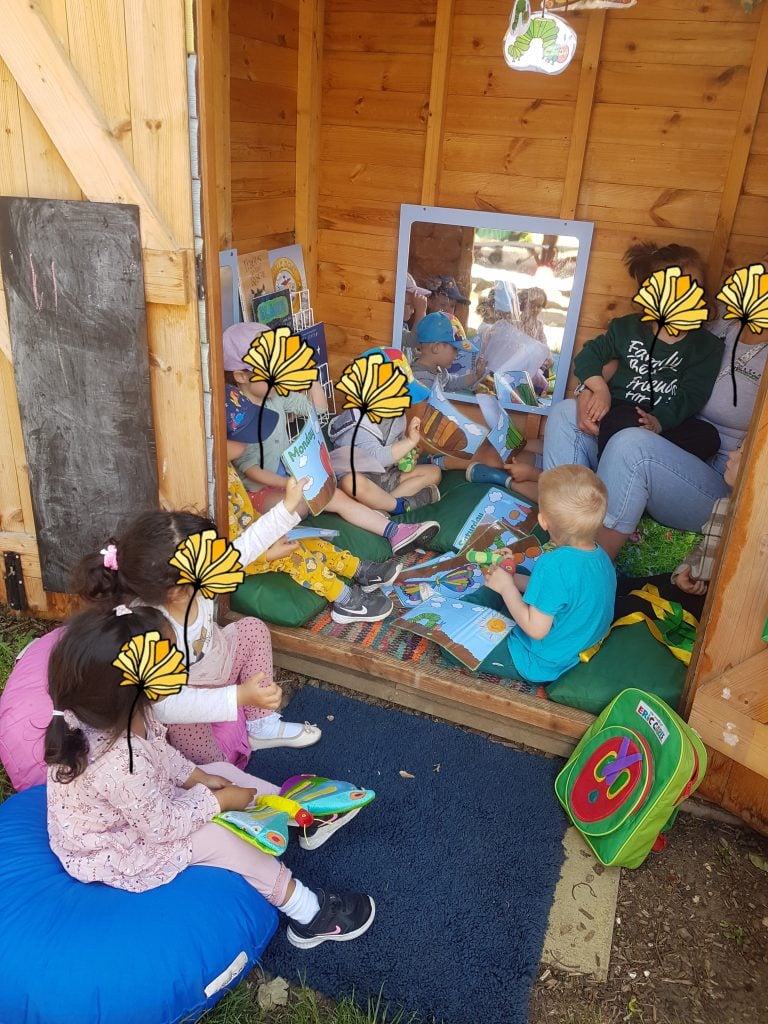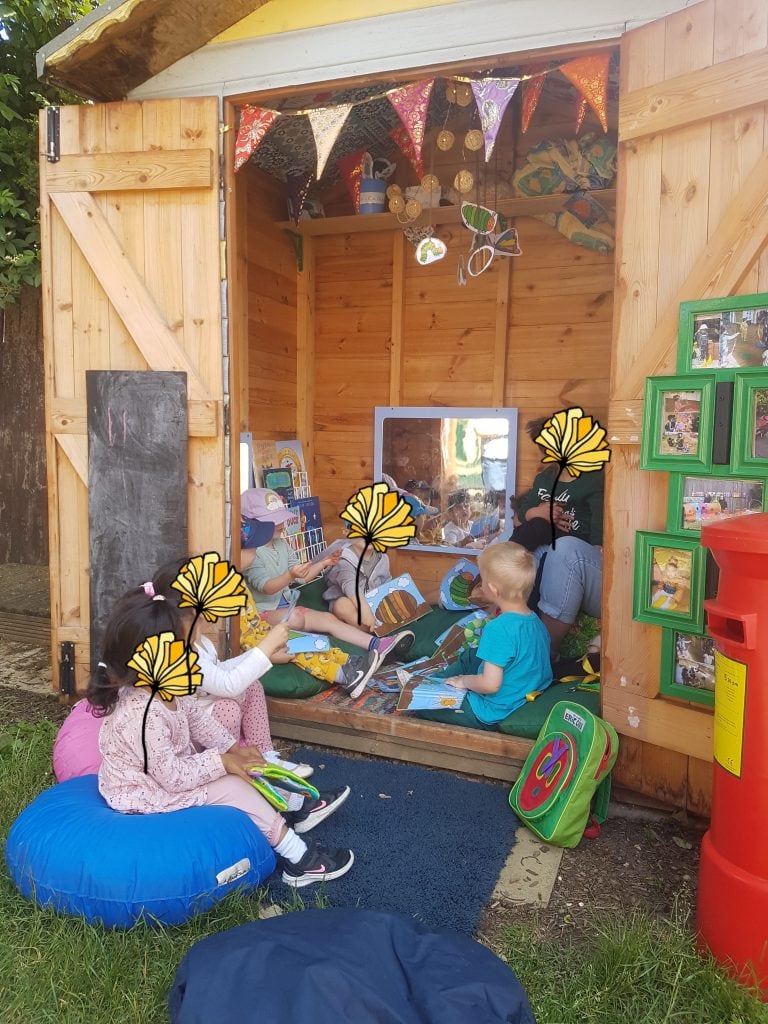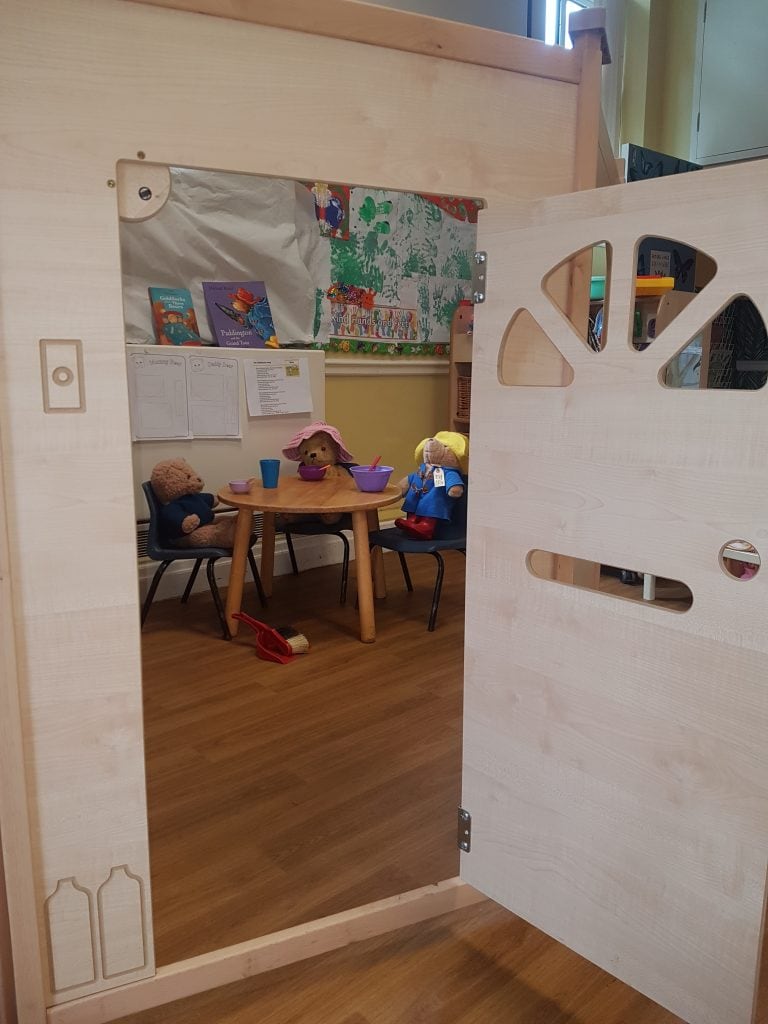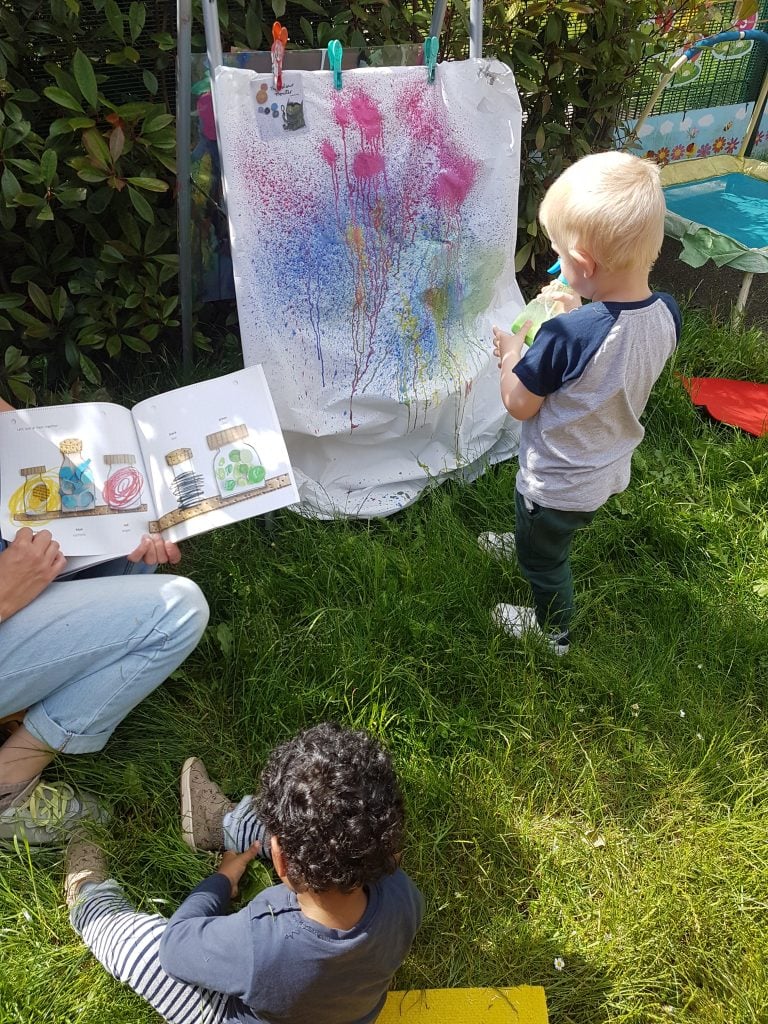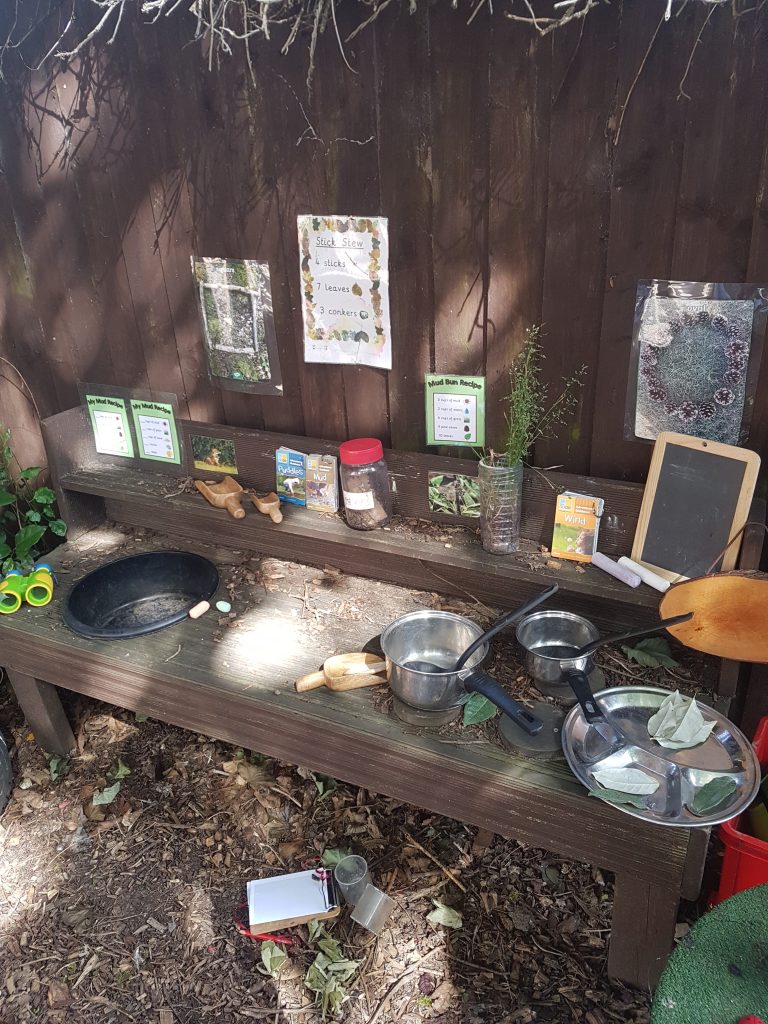From our initial findings and observations we wrote and redrafted a securing achievement action plan which outlined the need for children to have more support with literacy and numeracy.
In order for us to achieve this we outlined the need for staff training and more resources, the training included ‘Feeding the hungry caterpillar’ , ‘Early numeracy,’ ‘Look whos talking’ , ‘ parental engagement’ and ‘EAL’ this helped to build staff confidence by giving more knowledge and help build confidence helping to support children and parents.
Because we are a small team we have been able to have frank conversations on our progress , using observations , giving feedback from overall teaching enabling us to make changes where necessary but also acknowledging what has gone well, evaluating children’s progress and where necessary giving extra support.
Much of our funding has been used on resources throughout the setting adding opportunities for literacy and numeracy both inside and outside. We have created a comfortable quiet area for books supported by props and prompt cards for our many story sacks, book bags for children to take home, a screened area with different visual backdrops to favourite stories enhancing role play , opportunities for more mark making and numeracy in all areas of the provision so that the most can be gained from any moment.
As the manager I feel the setting has a real buzz. The children and the staff are more engaged, and when I look around everyone seems to be busy but most important there’s lots of smiles. Feedback from staff is very positive. They have enjoyed training and have asked to go on to do more, they feel more confident and positive.
We have a little one with SEND who has made our new book area his special place. Most importantly the children have thoroughly enjoyed the new resources this I have observed by them engaging and using all the resources with adult support and by themselves having lots of fun.
The EYIL role has focused on where we needed to add resources, support staff, organising time , give support, make changes and through the IOA we have been able to do this. All staff have gained a lot of knowledge and by putting this into practice have been able to enhance their skills which builds confidence and provides the children with very positive experiences.
